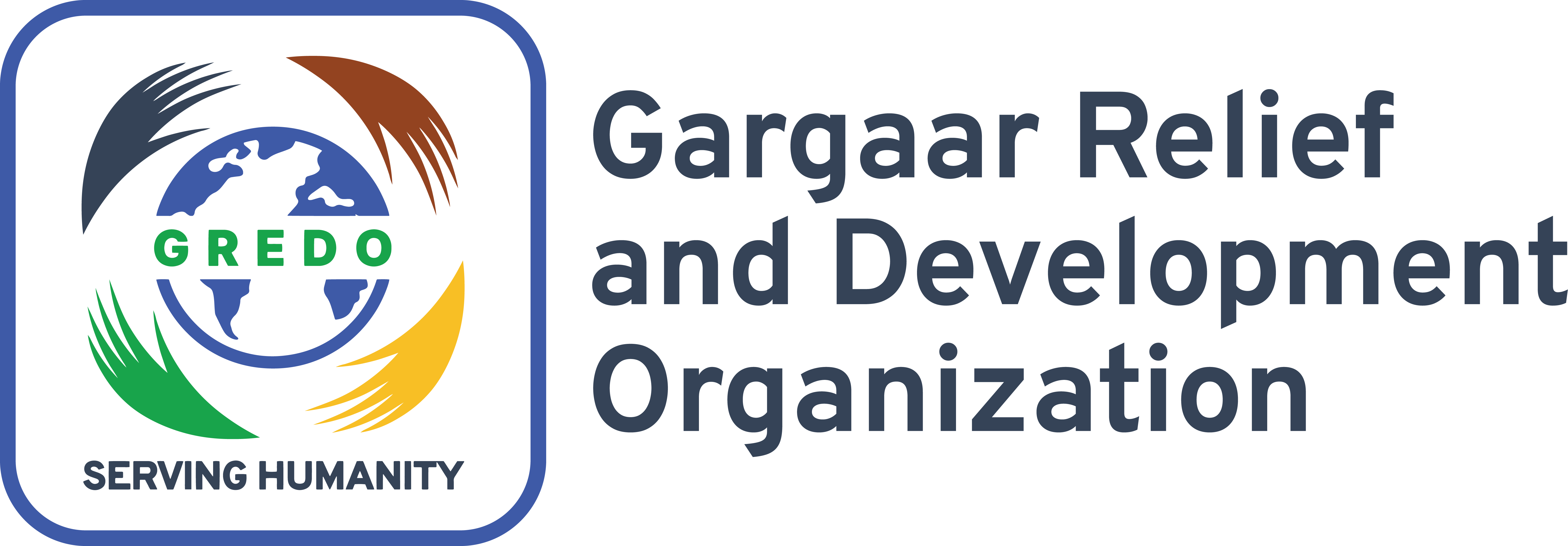“I was not scared of the security risks,” Ibrahim recalls. “What scared me most was the fear of losing a single life that could have been saved.”
Introduction
In the heart of Baidoa, Somalia, where insecurity and hardship are part of daily life, one man’s journey stands out as a story of resilience, determination, and humanity. Ibrahim Mohamed Yusuf, a 47-year-old father of nineteen and a passionate humanitarian worker, has spent more than a decade saving lives through health and nutrition programs with GREDO. Unlike many of his peers, Ibrahim did not have the opportunity to attend high school during his childhood, yet he never allowed that setback to define his future.
A Humble Beginning
Ibrahim’s first assignment at GREDO was not inside a health clinic but outside its gates. As a security guard, he ensured the safety of health workers providing lifesaving services in volatile areas.
But watching children treated for malnutrition and mothers receive critical care sparked something inside him. He yearned not just to guard lives but to save them firsthand.
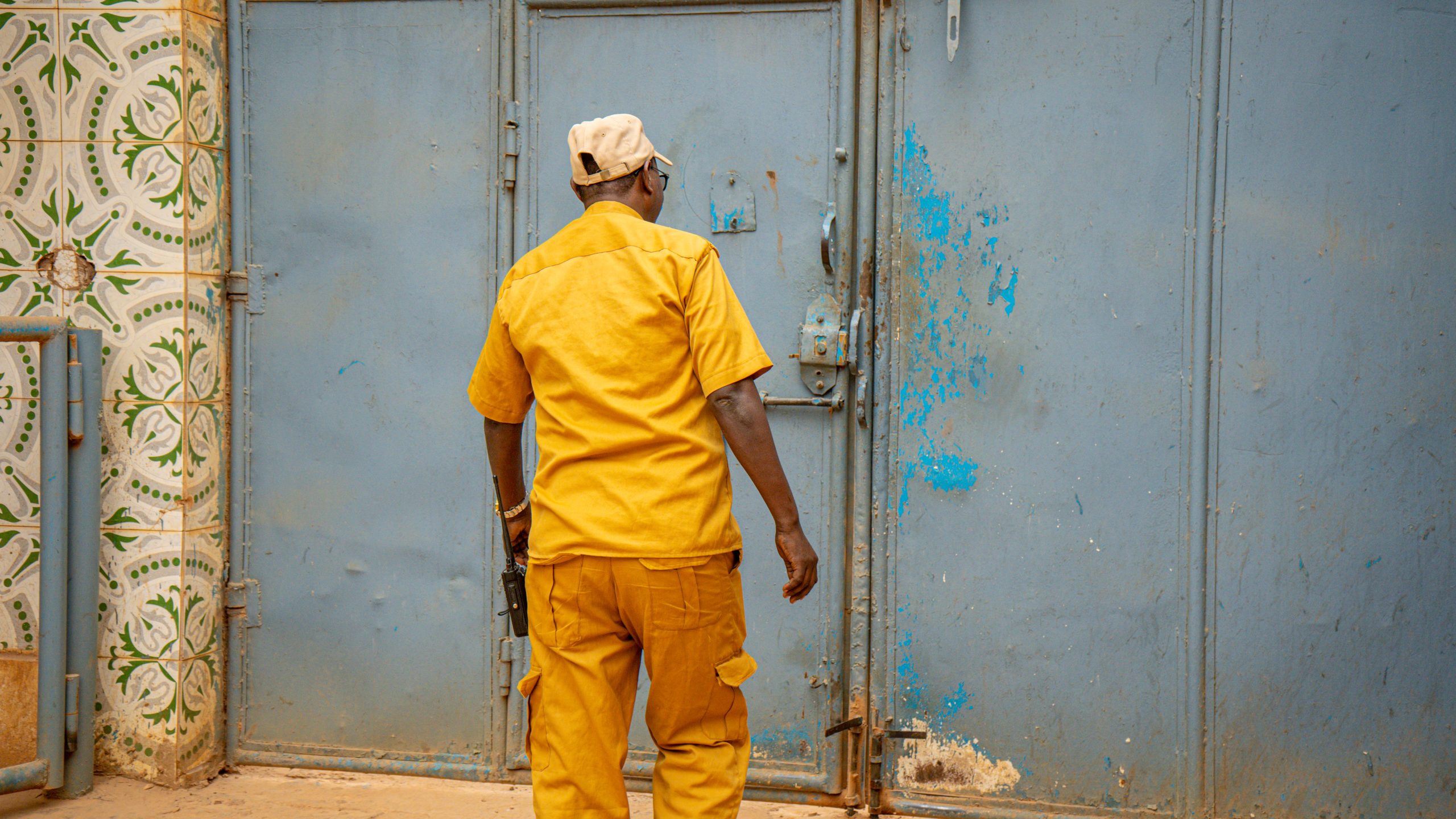
From his humble beginnings as a security guard, Ibrahim rose to become a Qualified Nurse, a transformation powered by courage, education, and an unshakable commitment to serve the most vulnerable. “While standing at the gate, I realized my true calling was to be inside, caring for the people.” – Ibrahim
Climbing the Ladder: From Guard to Nurse
Shifting from security work to a technical role in health and nutrition was not a simple transition. It required education, training, and perseverance at a time when resources were scarce, while the responsibility of supporting a large family weighed heavily on him.
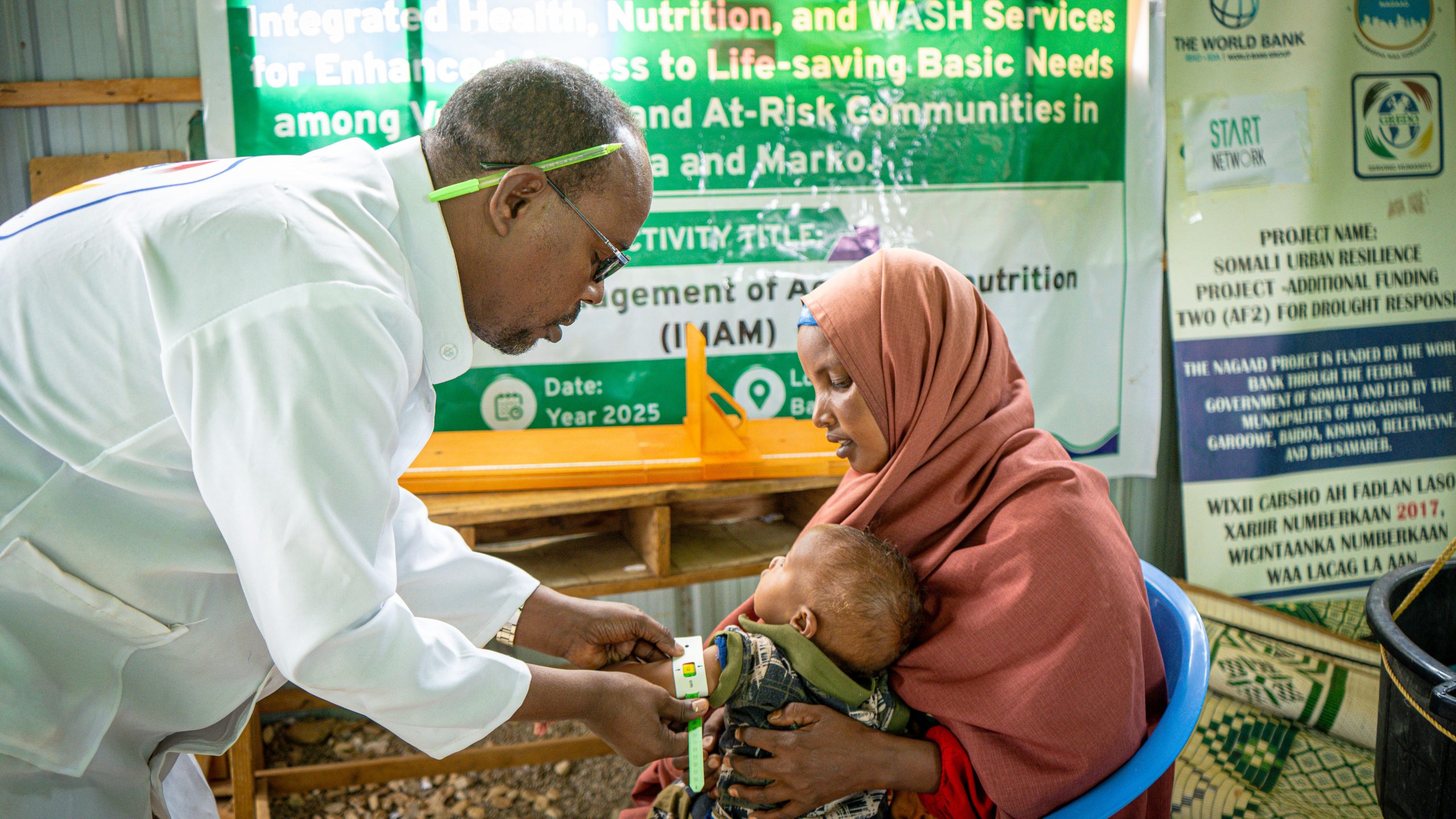
Determined, Ibrahim enrolled in evening and weekend classes, balancing work, studies, and his duties as a father. Over the years, he obtained his high school certificate and completed basic health and nutrition training courses. His persistence, combined with his years of experience working alongside medical teams, earned him the opportunity to join GREDO’s technical staff as a Community Mobilizer.
Throughout the years, Ibrahim rose through multiple roles: Community Mobilizer → Crowd Controller → Registrar → Screener → Auxiliary Nurse → Qualified Nurse.
At each stage, Ibrahim expanded his skills, strengthened his experience, and deepened his commitment to the communities he served.
Academic Ambitions Realized
Ibrahim’s thirst for knowledge did not stop with basic qualifications. While working full time and supporting his household, he enrolled at a local university to pursue a degree in Nursing.
Despite being much older than his classmates, some as young as his own children, he persevered. In 2023, Ibrahim proudly graduated with a degree in Nursing, proving that age and circumstance are no barriers to ambition when driven by passion.
“Age didn’t matter; my ambition was bigger than any obstacle.” – Ibrahim
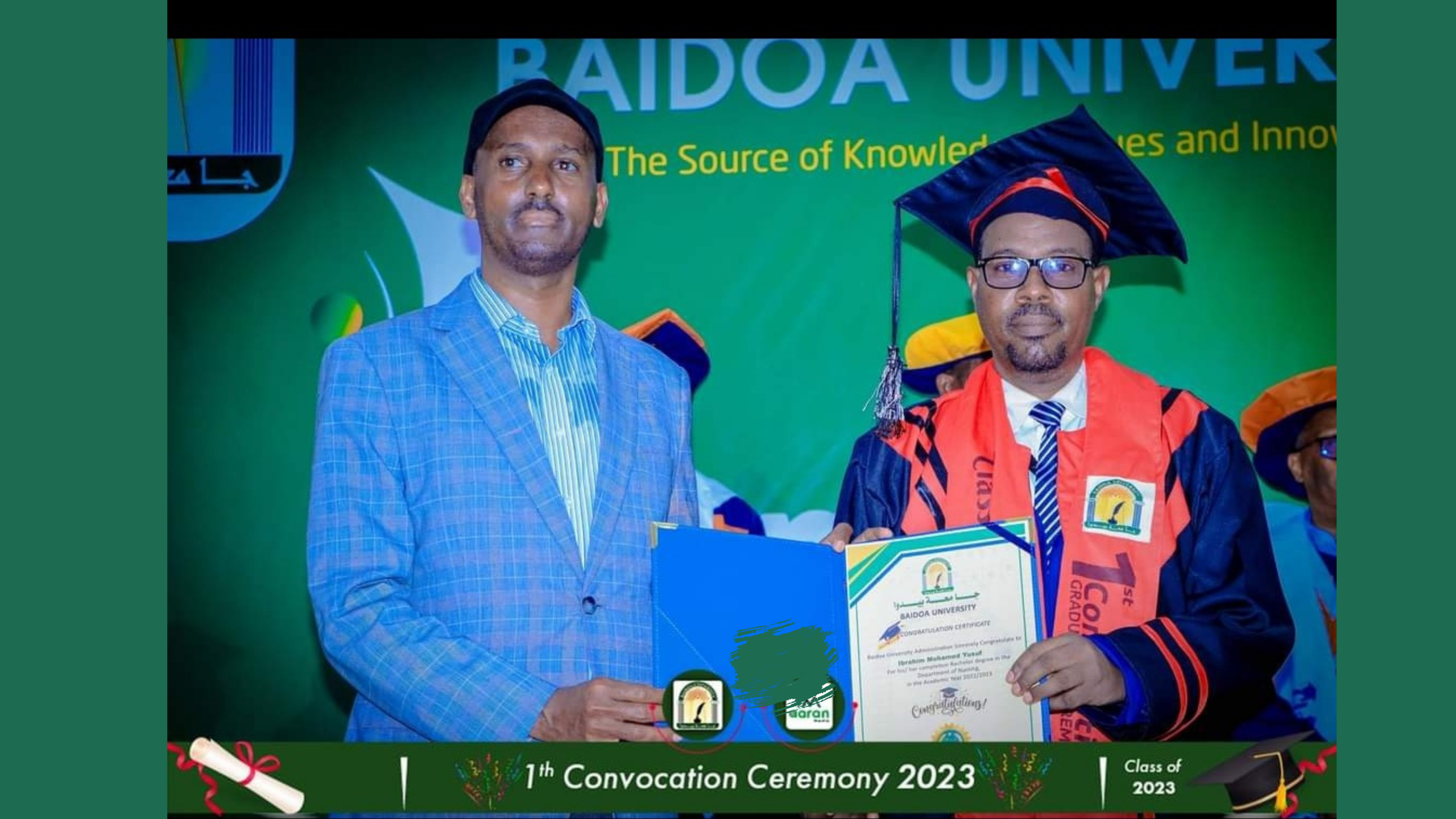
Resilience Amidst Conflict and Crisis
The humanitarian field in Somalia is fraught with risk. Ibrahim has endured situations where colleagues were killed, injured, or abducted. He himself has faced attacks, threats, and security incidents, yet he refused to abandon his mission.
Among his most challenging experiences were the 2017 cholera outbreak in Baidoa and surrounding villages. While insecurity deterred many organizations, GREDO took the risk of deploying teams to remote areas. Ibrahim was among the few frontline responders. “I was not scared of the security risks,” Ibrahim recalls. “What scared me most was the fear of losing a single life that could have been saved.”
Ibrahim and his team treated over 100 new cases daily, often staying in high-risk villages for weeks at a time. It was a defining moment that highlighted not only his courage but also his unshakable commitment to service.
When Funding Gaps Hurt the Community.
Beyond insecurity, Ibrahim faces another painful challenge (funding gaps/cuts). Somalia’s humanitarian work relies heavily on international aid, and when funding stops, communities suffer.
“What I don’t like most is when health facilities close because of funding shortages. The community still calls us, telling us children are suffering. But without medical supplies, we cannot help.” – Ibrahim
He recalls with sorrow the closure of a BHA/USAID-funded health and Nutrition center in Baidoa when funding was cut unexpectedly. “We had no words to explain to the community (people whose only hope for survival was us) that we could no longer serve them.” – Ibrahim. Even in such moments, Ibrahim and his colleagues continue offering consultations and whatever support they can afford from their own resources.
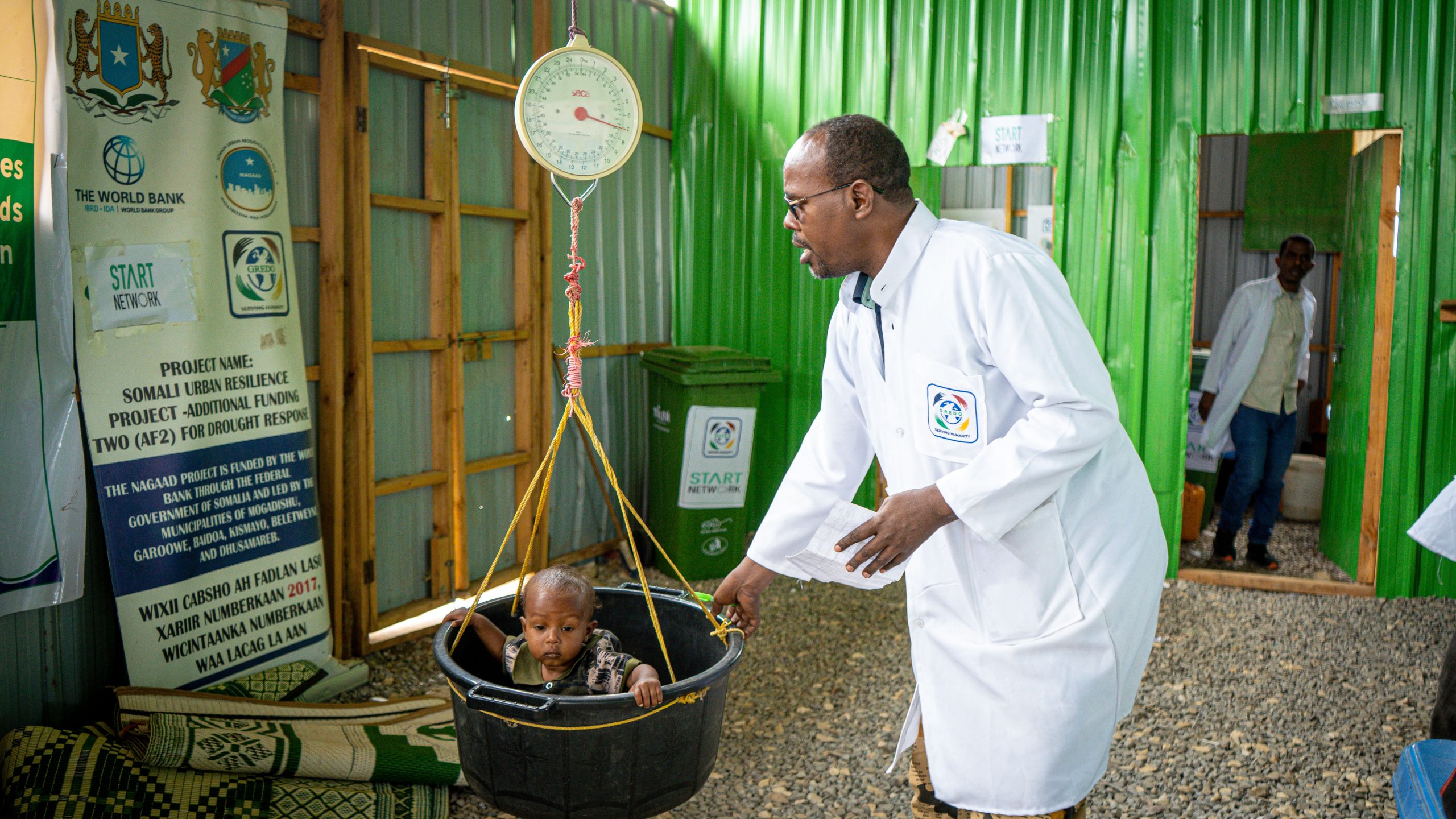
World Humanitarian Day – Honoring Humanity and Courage
Every year on 19 August, the world comes together to commemorate World Humanitarian Day (WHD). The date marks the 2003 bombing of the UN headquarters in Baghdad, which claimed the lives of 22 humanitarian workers. Since then, WHD has become a global moment to honor the courage, sacrifice, and dedication of humanitarian workers everywhere — those who risk their lives to bring aid, relief, and hope to people in crisis.
Stories like Ibrahim’s journey embody the true spirit of humanitarianism. They remind us that humanitarian work is not about income or recognition, but about perseverance, empathy, and an unwavering commitment to protect life and dignity.
As Ibrahim’s words for WHD 2025 capture so powerfully: “With even a little of our intervention, we can save lives.” His story, and countless others like it, inspire humanitarian workers and supporters worldwide to continue their mission, even in the face of risk.
“On World Humanitarian Day (19 August 2025), my message to fellow workers worldwide is simple, I encourage humanitarian workers around the world to continue and double their efforts despite the threats. At the end of the day, we will all die sooner or later, so why choose comfort while millions are suffering? With even a little of our intervention, we can save lives.” – Ibrahim.
Conclusion
Ibrahim’s journey from guarding the gates of a health facility to providing lifesaving care as a nurse, is one of transformation, perseverance, and humanity at its finest.
For the people of Baidoa, he is more than a health worker, he is a symbol of hope and resilience. For the global humanitarian community, his story is a reminder that the greatest legacies are built not from comfort but from sacrifice and courage and the most profound impact often comes from those who, against all odds, choose service over safety, and humanity over comfort.
